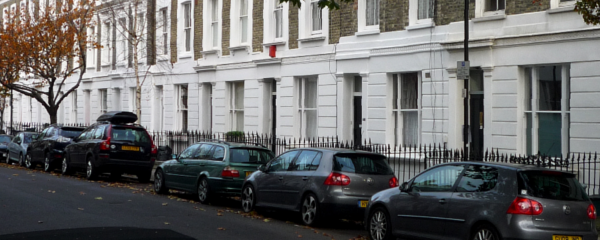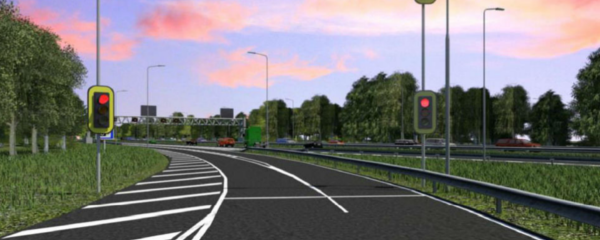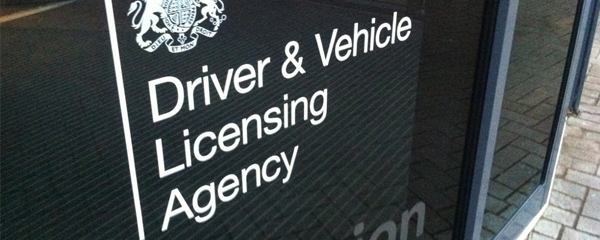Nov 29, 2017
The new General Data Protection Regulation (GDPR) will come into force on 25 May 2018. The legislation gives individuals more control over how their data is used. One potential consequence of this could be an end to the way that private firms issue parking fines. Currently, the DVLA makes money from selling people’s data to private companies, which then issue fines. The problem with the current system is that we, the owners of that data, haven’t permitted the DVLA to do this.
The data protection debate
Currently, we provide the DVLA with information in order to receive our driving licences and tax our vehicles. Both of these are legal requirements. The DVLA then takes the information it has gathered, such as our address details, and sells it to private parking firms. This practice makes a staggering £1 million per day.
These firms then use this information to track down where we live and send the fines to our home addresses. They also use the information if they go on to pursue the matter through the courts.
Under the GDPR, one of the main justifications for gathering data is that the data subject has provided ‘informed consent’ regarding how that data will be used. It also says that the data will not be used for other purposes without permission. Furthermore, individuals can request that their information be deleted.

(Credit – Maigheach Gheal)
Parking fine increase
Providing this information to private parking fine companies is a lucrative side income for the DVLA. In the second quarter of this financial year alone, it sold some 1.4 million records. Private parking firms used these to pursue drivers for penalties up to £100.
The RAC has warned that it expects the level of parking fines issued to increase significantly over the Christmas period. In fact, according to the RAC’s research, by April 2018 the total number of records sold by the DVLA will be at least 5.6 million. This could easily run to over six million if there is a boom in parking ticket numbers over Christmas. That’s a 21.5% increase on the 2016-17 period, which saw 4.71 million records sold. It’s also a staggering 12-fold increase in the number of tickets issued from 2007-08, when less than half a million details were sold.
Eagle-eyed companies
Because parking fines are such a profitable business, those involved in it are keen to spot drivers who have overstayed their ticket by even a few minutes. They can then use data they source from the DVLA to track down and fine the vehicle’s owner. Parking companies allow no grace period at the end of your parking period, even at the chaotic Christmas time when checkouts are busier and shopping trips take longer. With the cost of Christmas rising every year, a £100 parking fine is something that few families can afford to weather.
Of those companies cashing in on using DVLA data, Parking Eye was the main culprit during the second quarter of 2017-18. The company requested a total of 466,668 vehicle keeper records, which accounts for one in every three requests made.
Councils cashing in
It’s not just private parking companies that are making money from drivers overstaying their welcome. English councils made a record income from parking fines and charges last financial year, at a staggering £819 million. Figures from the RAC Foundation showed that to be a 10% increase on the previous year’s £744 million.
The 2016-17 financial year total was nearly £37 million more than expected. London boroughs led the way, with Westminster City Council making a profit of over £73 million, a 31% increase on the previous year. Outside London, Brighton and Hove City Council topped the list of earners, with a profit of £21.2 million.
The only positive to this situation is that the extra income does benefit drivers and residents, as it is ploughed back into infrastructure and services for the area – unlike the fines paid to private companies.
Debating the point
According to the DVLA, consent is one of six legal justifications for the valid use of personal data. It remains to be seen how this will be interpreted under the GDPR. Meanwhile, Sir Greg Knight is not letting the issue of parking fines drop. His private member’s bill aimed at dealing with the excesses of parking fines will be debated in the House of Commons in the New Year, as he pushes for a fairer balance between landowners’ and drivers’ rights.
Do you think the GDPR will mean an end to the DVLA selling drivers’ data to private parking firms? Or will the organisation simply find a way to circumvent the new regulations? Leave a comment below to air your views.
Nov 22, 2017
There’s even more bad news for diesel drivers this week. Islington Council has announced that, from January, it will be charging those with diesel cars £2.00 extra per hour for parking in one of the borough’s 6,500 short stay parking bays. It is encouraging other London boroughs to adopt the same approach.
The parking bays in question currently cost between £1.20 and £6.00 per hour. This will increase to £3.20 or £8.00 per hour for anyone driving any type of diesel car. Unlike other penalties for diesel drivers, which target older vehicles, Islington’s charges will apply regardless of the diesel’s age or how clean it is. This means that the cheaper bays will now cost these drivers more than double what they were paying originally. Drivers of brand new diesels who park up next to more polluting older petrol models, yet have to pay more for the privilege, will no doubt be irked by the new penalty.
Toxic air
The reason behind the parking charge increase is that Islington has been suffering from an increase in toxic air pollution. This is widely blamed on fumes produced by diesel cars. The council wants to protect its residents and plans to do so by reducing the number of diesel cars using its roads.
Encouraging people to purchase cars that don’t run on diesel is a sensible approach to tackling part of London’s air pollution problem. However, many drivers simply can’t afford to upgrade their vehicle right now, even if they wanted to.

(Credit – Oxfordian Kissuth)
Punishing diesel drivers
Many are seeing Islington’s plan as simply another way to punish diesel drivers. The fact that even hybrid diesels, which are much cleaner than many older petrol models, will need to pay the charge is adding fuel to the fire. Those who have shelled out to purchase a hybrid model for environmental reasons will feel particularly wronged.
This is not the first time that Islington Council has targeted diesel drivers. It previously added a £96 surcharge onto diesel residents’ parking permits. This meant that residents with new diesel cars that produce the same level of emissions as older petrol cars are paying more for their permits.
The threat of higher parking charges is just one more punishment to add onto the ever growing list for diesel drivers, who have been targeted by a variety of charges recently. For example, the T-Charge has now been introduced in London. It is costing drivers of both diesel and petrol cars £10 during peak periods. While it isn’t only targeting diesel cars, it is yet another cost that they have to contend with. There are other cities across Europe that are doing the same.
Bad press
Diesel drivers have also had to face bad press over the vehicles that they drive. This has been exacerbated by activists storming ships delivering new diesel cars. Despite the fact that older diesel cars are having a terrible effect on the environment, it is often the case that these cars were bought under advice from a previous government. Now, many drivers can’t afford to just go out and buy a new model, so are having to live with feeling increasingly guilty about a choice that they were officially encouraged to make.
Trying to reduce air pollution is vital. It is something which councils across the UK should be focusing on. However, with some older petrol cars releasing toxins that are just as bad for the environment – and not being targeted with additional charges – it does seem that councils are keen to raise these funds from diesel drivers in particular rather than fairly targeting only the most polluting vehicles (or even just charging everyone on the roads a tiny bit more).
The wrong approach
Antagonising diesel drivers is not necessarily the best solution. Positively encouraging the use of electric vehicles or hybrid models would be far more helpful. Islington Council’s approach, including the fining of diesel hybrid drivers, seems just as likely to spur diesel drivers on to buy petrol models as it does to promote cleaner vehicles.
Implementing a £2.00 per hour parking surcharge for diesel drivers is only likely to cause anger and frustration. If this is eventually rolled out across London, it could potentially make diesel drivers feel even more victimised that they do currently. It could even encourage drivers to turn away from hybrid vehicles in favour of petrol models.
Will Islington Council’s blanket approach work, in your view? Or does the borough need to rethink its strategy and target only the highest polluting vehicles? Leave a comment to share your thoughts.
Nov 22, 2017
A study carried out by airport transfer company Hoppa has found that 99% of drivers would fail their theory test if they were to retake it now. With Road Safety Week (20-26 November) in full swing, the statistic is alarming in its implications for the safety of our roads.
Theory test problems
As part of the study, 1,000 license holders sat a condensed version of the current theory test. They were asked to answer 15 multiple choice questions (rather than the 50 that new drivers are required to answer). To reach the 86% pass rate, they needed to answer 13 of the 15 questions correctly. However, the average score was a dismal 46%.
A question about stopping distances defeated 81% of the participants. Encouragingly, 82% answered the question about residential speed limits correctly. However, just eight of the 1,000 drivers passed the test.
Londoners were found to have the worst average score, at just five out of 15. Meanwhile, those in the 55+ age category scored the highest, showing that they have the best understanding of the Highway Code out of any age group that participated in the study.
The theory test pass rate has seen a dramatic drop over recent years. Just 49% of those who sat it in 2017 passed, compared to 65% in 2008. The results could imply that new drivers don’t understand the importance of these laws and rules of the road, or perhaps that the driving instruction process doesn’t focus heavily enough of them.

Road Safety Week
These results highlight how important having Road Safety Week is. The national initiative encourages both drivers and passengers to be aware of the types of things that can cause accidents on our roads. With an average of five people dying every day in car accidents, it’s vital that people understand how they can be safe at all times while they are on the road.
Road Safety Week asks people to pledge to drive in a slow, sober, secure, silent, sharp and sustainable way. The goal is to ensure that they do not put themselves and their passengers at risk, and all of these things can contribute to driving in a safe way.
By sticking to speed limits, not drink driving, making sure everyone in the vehicle is wearing their seatbelt, avoiding loud music, not using mobile phones, being aware at all times and only driving when absolutely necessary, drivers can ensure that there are fewer accidents and deaths occurring on the roads.
Five tips for safer driving
Keep your car in a safe condition – Before a car journey, especially a long one, always ensure that you’ve checked your tyre pressures, your lights are in full working order, and there are no water or oil leaks leaving puddles under your car. This way, you know that your car is safe to take out onto the roads.
Avoid distractions – Although it is nice to have music on when you’re driving, make sure that you keep it at a suitable volume, so that it doesn’t distract you or drown out the noise of sirens or other important road noises. You should also make sure that your phone is out of reach and sight, so that you’re not tempted to use it.
Don’t allow yourself to be put under pressure – When you’re out in the car and another driver comes up behind you and sits too close to your rear bumper, it can sometimes pressure you to go faster. If this happens, simply pull over when it is safe to do so and let them drive past. This will be safer for you both.
Expect the unexpected – Just because the car in front of you is indicating is doesn’t necessarily mean that it will turn, and just because you can’t see anything on the corner you are turning around, it doesn’t necessarily mean that there’s not a slow moving vehicle awaiting you. Always expect the unexpected and be extra cautious and aware at all times.
Always wear your seatbelt – Putting your seatbelt on when you get in your car should come as second nature to every driver and passenger. Always check that everyone has buckled up before you set off. Doing so could save your lives.
Have you thought more about the way that you drive as a result of Road Safety Week? Have you made any changes to your driving as a result? Leave a comment below to let us know.
Nov 15, 2017
According to the latest Autumn Budget predictions, Chancellor Philip Hammond looks set to further demonise diesel drivers, with new measures to tax vehicles more heavily. The move will be presented in the 22 November Budget announcement. It is being presented as a means of improving air quality, but it seems to be yet another step towards making diesel vehicles untenable for drivers.
New tax
The Chancellor is expected to penalise drivers of diesel vehicles in order to boost initiatives created by Environment Secretary Michael Gove, which were announced in July. The measures are aimed at improving air quality in towns and cities around the country. The punishing new tax is believed to either take the form of a raise in VAT on diesel fuel or a new taxation on diesel vehicles.
The Treasury has already released a statement confirming that the clean air strategy would involve a tax that would treat ‘new diesel cars differently.’ It is yet another penalty being put on diesel drivers in this period of anti-diesel rhetoric, just like the ‘Dieselgate’ scandal that broke back in 2015.

(Credit – DFID)
Falling sales
The sale of new diesel vehicles is already in free fall. Car sales in the UK contracted by 12.2% in October compared to same period in 2016. Diesels have seen a 29.9% decline over the same period.
According to the AA, some 41% of members have diesel vehicles. However, when drivers are asked what their next vehicle will be, the figure drops to just 16%. People are being forced away from diesel as it continues to be demonised in relation to the UK’s air pollution problems.
Meanwhile, the government continues to encourage the use of electric and hybrid vehicles. This segment of the care industry enjoyed sales growth of 36.9% in the 12 months to October 2017. It now represents 5.2% of the total market.
Pressure on diesel drivers
Rumours also abound that the Chancellor may not only increase the tax on diesel cars, but decrease it on petrol cars, which are viewed as less polluting than their diesel counterparts. Such a move would no doubt been seen as yet another kick in the teeth for diesel drivers.
When people are asked, there’s little doubt that most are against the proposed tax increase for diesel vehicles. In a Facebook poll, PetrolPrices asked: Do you think it’s a good idea to tax diesel drivers more to help reduce pollution and invest in low emissions transportation schemes?
Of those who answered, a resounding 81% said “no.” Just 19% of respondents believed that diesel drivers should face more taxation to help deal with the higher emissions from these vehicles.
Unfair measures
The RAC also believes that the proposed measures aren’t the right way to deal with the problem. Chief Engineer David Bizley said that the foundation is concerned particularly about business drivers and those who drive long distances. They often stick with older diesel vehicles because they offer better fuel economy. Increasing tax in a ‘knee-jerk’ reaction could mean owners continue to stick with older, more polluting vehicles because they can’t afford to swap to newer models.
He further added that the irony in all of this is that the new generation of diesel vehicles have had so many improvements from car manufacturers that they are likely to be no more polluting than their petrol counterparts. So, within 12 months, the measures will already be outdated. No doubt the new tax will still remain in force, though.
Rising fuel prices
The measures could come alongside a period of rising fuel prices that make it even harder for drivers to afford to run their vehicles. Experts predict that the price of Brent Crude oil could rise again in November. It’s already up £13 a barrel since the middle of the year. Currently, it’s trading at $63 dollars a barrel, the highest price since June 2015.
This could mean an increase of around 3p per litre for petrol drivers and around 1p per litre for diesel drivers. If the Chancellor adds additional tax onto the cost of diesel fuel, this could make travelling by car this Christmas a very costly experience.
Will the latest financial punishment lead you to ditch your diesel? Or is driving simply becoming more expensive across the board, no matter which vehicle type you opt for? Leave a comment to air your opinions.
Nov 15, 2017
Being stuck in a traffic jam is one of the most frustrating things that a motorist can face, especially on their daily commute. 61% of drivers say that congestion has become worse in the past year. The UK is in desperate need of a solution – but are traffic lights on motorways really the answer?
Motorway traffic lights trial
In order to combat some of the UK’s traffic woes, Highways England is investing £7 million into a trial that will see traffic lights being used on the link road between the M6 and M62 motorways during the morning rush hour.
Accompanied by electronic signs displaying congestion warnings and variable speed limits, these traffic lights will be switched on between 6.30 am and 9.30am. The hope is that they will ease the flow of traffic and create a smoother journey for commuters.
The lights were tested last month and will be switched on in December. They will be monitored by cameras for a year to see if they are having the desired effect. If so, such schemes may be rolled out across the country.
Until now, traffic lights have only been installed on slip roads to slow traffic as it joins the motorway. However, this new plan aims to monitor the vehicles leaving the M6 so that they can be controlled as part of efforts to minimise queuing on the M62.

(Credit – Highways England)
A topsy turvy plan?
While transport professionals believe that the traffic lights will help to ease congestion, it seems contraindicative to think that slowing down traffic will help to speed up journey times. Indeed, many motorists are concerned that the traffic lights will simply increase the number of accidents on the link road, with commuters engaging in drag racing-style efforts to get ahead on their route between the motorways!
Naturally, the chance to raise revenue as part of the scheme has not been missed. Drivers who don’t obey the variable speed limits or stop at the red lights will be fined. No doubt this will anger motorists already facing the risk of fines due to newly implemented smart motorways, with all their related (and widely misunderstood) rules.
A growing problem
There were 1.35 million traffic jams on motorways and A roads in the past year. That equates to an average of 3,700 tailbacks each day. The estimated cost to the economy of all this congestion is £9 billion per year.
Motorways are definitely causing drivers the most issues. Although they only make up 1% of the UK’s road network, they are responsible for 21% of all of the miles driven each year. Add to that the fact that traffic is up 30% in comparison to the mid-90s and the scale of the problem becomes apparent.
Where will it end?
New technological updates on the roads (smart motorways technology being the prime example) are simply making driving less enjoyable. This is definitely not being helped by the increasing congestion that motorists are facing every day. Could this be on reason that car sales have been dropping, as people opt to use public transport or car shares instead?
Even if congestion on our motorways isn’t stopping people driving to work, it could certainly be changing their behaviour. Many drivers are opting to use smaller roads instead of the motorway network. The likely result will be more congestion on our A and B roads, resulting in similar problems to those that drivers are already facing on the motorways.
Congestion on smaller roads also causes its own host of problems, including blocking crossings and making roads around schools more dangerous. Larger vehicles could even be at risk of getting stuck if they meet something of a similar size travelling in the opposite direction.
The government is in the process of investing £50 million into a number of large projects that aim to ease congestion. However, with motorists already feeling angry about the financial side of owning and using a car, the government will need to do an awful lot in order to make driving enjoyable again. Rolling out a nationwide motorway traffic light system is unlikely to win hearts and minds. There’s no simple answer to controlling the UK’s traffic during the busiest times of the day, but an answer is what we need – and fast!
Do you find driving less pleasurable than it used to be? What changes could be made that would enhance your driving experience? Share your thoughts by leaving a comment below.
Nov 8, 2017
The DVLA has launched a big campaign to track down and penalise people who are dodging paying car tax (also known as vehicle excise duty – VED). The measure comes after the department admitted that revenue from VED fell by £93 million in the year following the abolition of the paper tax discs. It turns out that plenty of drivers used the change to chance not having tax on their car – many of them successfully.
Getting tough
According to the DVLA, the new campaign will highlight what can happen to drivers who haven’t paid their car tax. It will run on radio, catch-up TV and online, as well as in newspapers throughout November. While the supermarkets and other retailers paint an idyllic picture of Christmas in between TV shows, the DVLA will be running an advert featuring a hand-painted car that looks transparent, to show that even if drivers think their car is invisible, it can still be found and clamped.
The RAC welcomed the new scheme, saying that it is good to see that the DVLA is publicly warning drivers about the penalties for not taxing their cars. Untaxed vehicles are often also uninsured. These are a nuisance to society and cause higher insurance premiums for everyone. Thus the RAC welcomes all steps taken to cut down on the number of untaxed vehicles.

(Credit – Dafydd Vaughan)
In the figures
According to figures released by the DVLA, around 10,000 untaxed vehicles are clamped or impounded every month. In 2016, 106,000 untaxed vehicles were immobilised or impounded for dodging car tax. The figure was almost double that of 2014 (at just over 57,000), and a notable increase on the 2015 figure (of 85,000).
Dodging car tax is one of the big reasons for the dip in revenue and the rise in impounded vehicles. However, the DVLA also says that the push towards low emission vehicles has played a part. Overall, it will collect around £147 million less in 2016-17, compared to the 2014-15 period.
A further consideration is that in 2014, new reforms were brought in that meant car tax couldn’t be transferred from one owner to another when a vehicle was sold. Even if a car had a good number of months remaining on the tax, the new driver had to re-tax the vehicle and the seller had to get a refund for the unused time from DVLA. The change caught many buyers off guard and no doubt led to many vehicles going untaxed in error.
The DVLA points out that it has never been easier to tax a vehicle, so drivers have no excuse for not doing so. The online system is available 24 hours a day and you can spread the cost with monthly Direct Debit payments, so there’s no need to pay in a lump sum.
2017 car tax reforms
Reforms in 2017 further changed the car tax system, with greater rewards for lower emission drivers. From 1 April 2017, only electric cars that produce zero emissions and were valued at less than £40,000 are exempt from car tax payments.
Any car worth more than £40,000 will need to pay a £310 surcharge on top of the normal cost of car tax. Cars registered after 1 April will pay a standard rate for their car tax after the first year. This depends on the type of car and fuel used:
- £140 a year for petrol and diesel vehicles
- £130 a year for alternative fuels such as hybrids
- £0 for zero-emissions vehicles such as fully electric cars
This means that a vehicle in the 120g/km band for emissions has gone from paying £30 under the old system to paying £160 for the first year and then £140 a year thereafter under the new system.
Push towards electric
The new, higher tax rates for all types of vehicles (apart from electric) show the real-world application of the government’s big push towards zero emissions vehicles in coming years. At the same time, those who chance leaving their vehicle without tax now face an even greater chance of being caught. This could potentially lead to them losing their vehicle entirely.
Will the new DVLA campaign result in more drivers taxing their vehicles? Or has the switch to an electronic system created loopholes for drivers to hide in? Share your views by leaving a comment.





